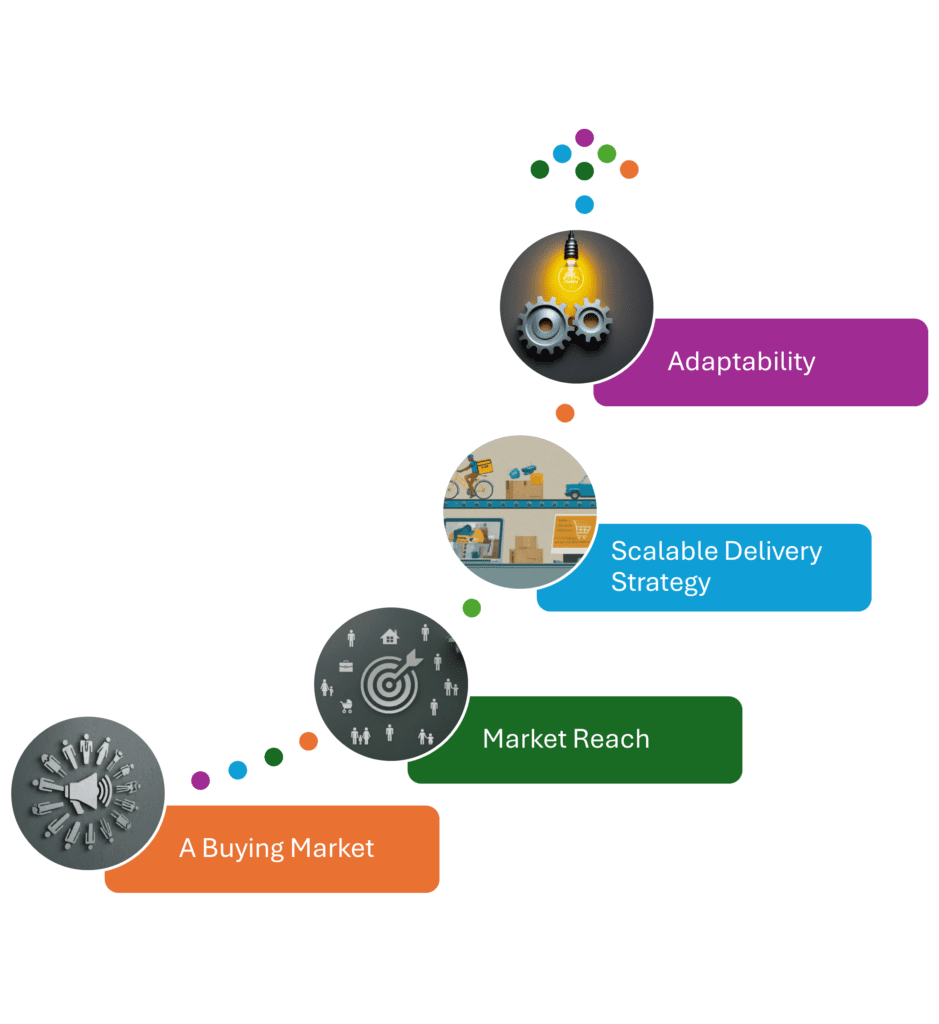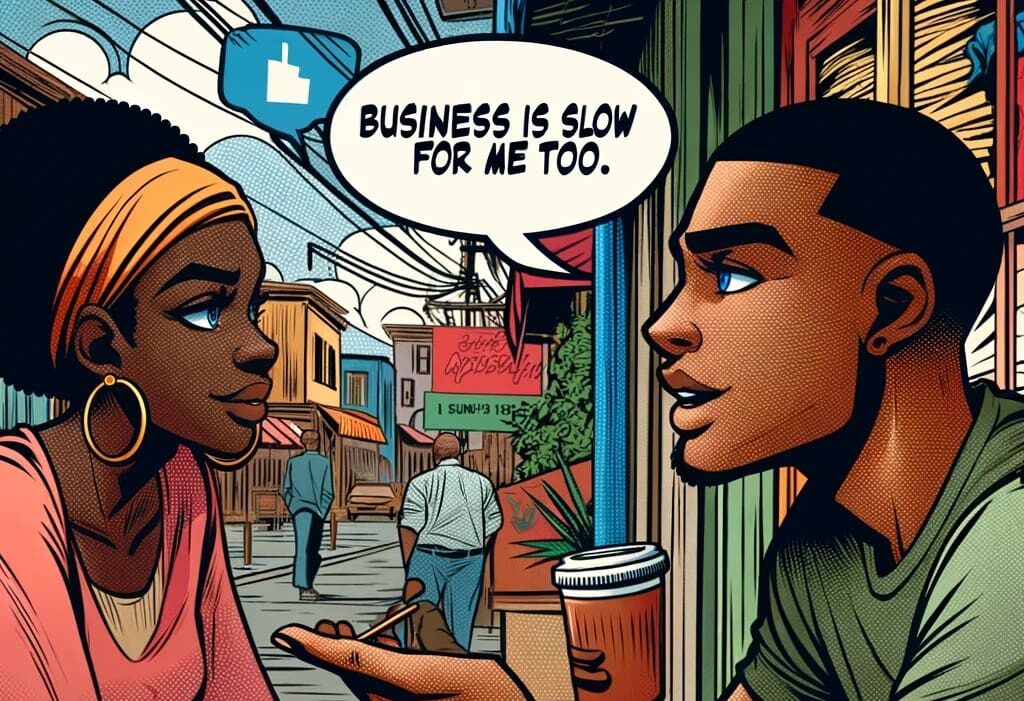There is a fallacy in the thinking that African American and African-owned businesses are operating in different metaphorical hemispheres because their literal ones are far apart. In this article, we’ll examine the similarities in the state of black-owned companies from the US to Kigali, Rwanda – Africa, and discuss some steps these businesses can take to improve growth and sustainability.
The STATe of Black-Owned Business Globally
The entrepreneurial landscape for Black and African-owned businesses is both vibrant and challenging. In the United States, Black-owned businesses have shown a notable growth rate, with reports indicating an approximate 34% increase from 2007 to 2012. Rwandan-owned businesses have similarly experienced growth, spurred by the government’s focus on economic development and entrepreneurship. Between 2017 and 2020, the MSMEs grew by 23%. Despite these positive trends, both groups face high closure rates within the first 18 months, with a significant portion not surviving beyond this critical period.
In the US, Black-owned businesses are predominantly found in the health care, social assistance, and retail sectors. In Rwanda, there’s a significant presence in the wholesale and retail trade, repair of motor vehicles and motorcycles, accommodations, and food service. Tech adoption rates among these businesses are relatively low, affecting their competitiveness and growth potential. Regarding economic impact, Black-owned firms in the US contribute around $150 billion to the GDP and are a source of employment for millions. Likewise, Rwandan MSMEs play a crucial role in Rwanda’s economy, contributing 33% of Rwanda’s GDP and 56% of its jobs.
The Problem
The primary challenges faced by Black and African-owned MSMEs revolve around resource, knowledge, and technological gaps. Resource gaps are evident in limited access to capital and financial services. Knowledge gaps affect market access, customer acquisition, and effective management. Technology gaps are particularly pronounced, with many businesses recognizing the need for a basic online presence but often overlooking advanced technologies that could improve operational efficiency and customer retention. Addressing these gaps could significantly mitigate the funding access problem, as improved efficiency and market reach inherently enhance profitability, creditworthiness, and investment appeal.
The Solution
More comprehensive technology adoption in MSMEs can be a game-changer, offering several pathways to growth and sustainability:
- Digital Marketing and Sales Platforms: Enhancing online visibility and sales through professional websites, automation, e-commerce platforms, and social media marketing.
- Operational Efficiency Tools: Implementing management technology for inventory, finance, and customer relations to streamline operations.
- Data Analytics: Leveraging data analytics to understand customer behaviors and preferences and to tailor offerings accordingly.
- Mobile Solutions: Utilizing mobile technologies to reach wider audiences, especially in regions with high mobile penetration.
- Access to Online Marketplaces: Joining larger e-commerce platforms to gain access to broader markets without significant upfront investment in physical infrastructure.
A Formula For Business Success
For sustained success, businesses need to have these four things.

A Viable Market
Having a viable and sustainable market for your products or services means having enough people who will pay you for the product, value, and services you provide. Ideally, you should be able to reasonably assess that this number of people will grow (or at least not deminish) during the life of your business.
Market Reach
Every business must have effective strategies to reach and penetrate its target market. Who, why, where, how, and when are essential questions every marketer must answer about their target market.
- Who is my target market?
- Why does my target market want or need what I sell? What are the pain points and desires that drive their purchase decisions?
- Where is my target market?
- How does my target market prefer to consume information, products, and services relevant to my offering?
- When do they consume these things?
Your strategy is the practical way in which your business uses the answers to these questions to reach and communicate value to future customers.
Scalable Delivery Strategy
Good customer experiences result in better customer retention and lower customer acquisition costs.
A customer-centric and scalable product and service delivery model emphasizing consistant experiences and customer retention.
- Are we delivering on our promises?
- Are we meeting customers’ quality expectations?
- Are we addressing prospect inquiries and customer needs and concerns timely, consistently, and effectively?
- Are we making it easy or convenient for customers to find and choose us over alternatives?
- Are we able to meet the demand of the number of customers we want to serve?
Answering these questions can help refine product and service delivery, as well as sales and marketing processes so that they are more customer-centered.
Adaptability
Continuous innovation and adaptation to meet changing customer expectations and market needs are essential to business sustainability.
Be willing to innovate, pivot, shift, change, and grow with your market or find and reach new markets alltogether.
While there are other factors that contribute to business growth and sustainability, it is a distant hope for businesses not effectively attending to these four inputs. Instead of growth, such companies operate to survive. Rather than longevity, they experience disappointment. The good news is that there are tools and technologies business leaders can leverage to make 1 through 4 attainable, no matter how small or big a business is.
The Results
The most notable brands in black business excellence leverage technology to get phenomenal results. From digital marketing and e-commerce to developing custom digital solutions, black founders continue to use technology to build and grow sustainable brands.
BLK & Bold Specialty Beverages
Founded by Rod Johnson and Pernell Cezar, BLK & Bold became the first Black-owned, nationally distributed coffee brand in the United States. They used digital marketing strategies and e-commerce platforms effectively to grow their brand. They also leverage their online presence to support community initiatives, with a portion of their profits supporting at-risk youth.
The Lip Bar
The Lip Bar, founded by Melissa Butler, is a vegan and cruelty-free beauty brand that gained significant traction through its digital marketing efforts and social media presence. The company which initially faced challenges, including being turned down on “Shark Tank,” utilized e-commerce and direct-to-consumer sales strategies to grow substantially.
Partake Foods
Founded by Denise Woodard, Partake Foods is a company that offers allergen-free cookies. Woodard used digital platforms for marketing and direct sales, which was crucial for the brand’s growth. The company’s products are now available in over 2,500 stores, but its digital presence remains vital to its business strategy.
CURLS
CURLS, founded by Mahisha Dellinger, is a natural hair care brand that has successfully used digital platforms to market its products. Through effective use of social media and online branding, CURLS has become a prominent name in the natural hair community, illustrating the power of digital engagement and community building.
FUBU
While FUBU (For Us By Us), founded by Daymond John, J. Alexander Martin, Keith Perrin, and Carlton Brown, began before the digital age, it’s a notable example of a Black-owned business that adapted to the digital era. FUBU utilized digital marketing and e-commerce to revitalize the brand, reach new audiences, and maintain its relevance in the fashion industry.
TresseNoire
TresseNoire is a beauty tech startup co-founded by Regina Gwynn and Octavia Pickett-Blakely. It’s a virtual beauty coaching platform that offers personalized hair care advice for women of color. Their digital platform has allowed them to reach a broad audience and fill a significant gap in the beauty market.
For Black and African-owned MSMEs striving to level the playing field, LevelUp by Stratinuity offers a comprehensive solution. This all-in-one business systems platform equips MSMEs with the tools needed to compete like their larger counterparts, addressing operational, marketing, and customer service needs in one seamless interface. LevelUp and Biz Ops Africa aim to bridge the technological, skills, and knowledge gaps, ensuring that black-owned businesses across the globe not only survive but thrive in today’s increasingly digital economy.




